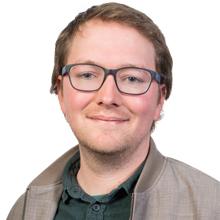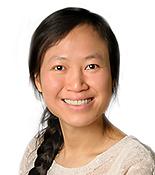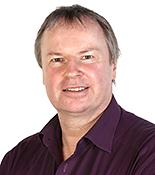EIPOD-LinC has received funding from the European Union’s Horizon Europe’s research and innovation programme under the Marie Skłodowska-Curie grant agreement No. 101217201.
- Programme Overview
- Interdisciplinary Research Projects
- EMBL Hosts
- Training
- EMBL as an Employer
- Application
- Partner organisations
Programme Overview
EIPOD-LinC is a Postdoctoral fellowship programme supporting promising researchers from around the world who are passionate about interdisciplinary research. The programme is designed to support the increasing diversity of career paths in Europe’s research landscape providing researchers with the mentoring, training and career development support needed to become leaders in academia, industry and beyond.
The programme is embedded in EMBL’s unique interdisciplinary and collaborative research environment. Candidates work on self-designed interdisciplinary research projects in the context of EMBL’s research programme: Molecules to Ecosystems. All projects require an EMBL Host and a partner. Partners may come from an academic institute, industry or clinic located in an EMBL Member State, Associate Member State or Prospect Member State. Importantly, projects must allow candidates to gain new skills contributing to interdisciplinary research skill sets. The full breadth of EMBL research is available here.
The EIPOD-LinC programme has one annual call for applications per year. The dates for the 2025 EIPOD-LinC call are shown in the table on the right.
Active EIPOD4 fellows and their research projects.
All EIPOD fellows (current and alumni)
Interdisciplinary Research Projects
Fellows work on self-designed interdisciplinary research projects in the context of the EMBL research programme: Molecules to Ecosystems. The overarching goal of the research programme is to drive our understanding of life on earth and inform potential solutions to society’s biggest challenges such as irreversible loss of biodiversity, antimicrobial resistance, pollution, climate change, food security and emergent pathogens. A detailed summary of the individual themes are available on the EMBL webpages (see below).
As part of the application, candidates are asked to develop an interdisciplinary research project in one of the 4 main programme themes listed below which are directly linked to EMBL’s research programme.
(1) Molecular Mechanisms: investigates the molecular mechanisms underlying the principals of
biological processes across spatiotemporal scales and how changes (genetic, epigenetic and/or environmental) affect molecular function, modifications, and macromolecular complexes,
including subcellular structures; develops innovative experimental methods and advanced technologies to measure and manipulate living systems.
(2) Human Health: applies molecular insights to understand human biology and develop disease models and therapeutic strategies, e.g., in combating antimicrobial resistance and infectious diseases; uses human cohort data and molecular genetics in cells, organoids, organs-on-a-chip, and animal models to explore the interplay between genetics and the
environment.
(3) Planetary Ecosystems: investigates interactions between microbes, plants, animals with each other and their environment at the molecular level.
(4) AI and Theory: uses mathematical models, physics principles and AI to predict biological processes at all scales, from molecular to population levels, with a focus on structural biology, omics, and imaging.

The projects require a main EMBL host who is taking part in the call and a partner from an EMBL Member State, Prospect Member State or Associate Member State.
EMBL Member and Associate Member States
Austria | Belgium | Croatia |Czech Republic | Denmark | Estonia |Finland | France | Germany | Greece | Hungary | Iceland | Israel | Italy |Latvia | Lithuania | Luxembourg | Malta | Montenegro | Netherlands | Norway | Poland | Portugal | Serbia | Slovakia | Spain | Sweden | Switzerland | United Kingdom | Australia
EMBL Prospect Member States|
Bulgaria | Serbia
EMBL Hosts
EMBL Barcelona
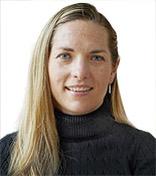
Talya Dayton
Group Leader
Dayton Group
Edit
Alejandro Torres-Sánchez
Group Leader
Torres-Sánchez Group
EditCollaborations
Collaborations
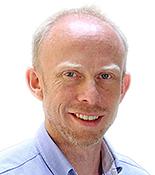
James Sharpe
Head of EMBL Barcelona
EMBL Barcelona
Edit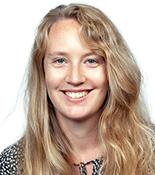
Hannah Stuart
Group Leader (incoming)
Stuart Group (from June 2026)
ORCID: 0000-0001-9563-9760
EditCollaborations
Kristina Haaase, EMBL Barcelona (Lab of engineering vascularised tissue-specific disease models)
Mekayla Storer, Cambridge University (Lab of Stem Cells and limb regeneration)
Collaborations
EMBL-EBI

Alex Bateman
Senior Team Leader – Protein Sequence Resources
Sequence Family Resources
Edit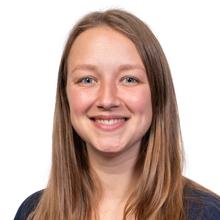
Jessica Ewald
Group Leader
Ewald group
EditCollaborations
Jukka Corander, Institute of Basic Medical Sciences, Norway (Bayesian statistics, E. coli, modelling/statistics, competition)
Nicholas Croucher, Imperial, UK (Streptococcus, bacterial evolution, bioinformatic methods)
Zamin Iqbal, University of Oxford, UK (Indexing and search, all the bacteria, plasmids)
Collaborations
Bjarki Johannesson, Astrazeneca, Sweden/UK (High-content imaging, perturbation mixture prediction, representation learning)
Sarah Teichmann, University of Cambridge, UK (scRNA-seq and high-content imaging to predict cell-type specific perturbations)
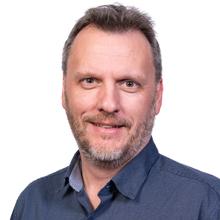
Robert Finn
Section Head, Team Leader and Senior Scientist
Microbiome Informatics
EditCollaborations
Collaborations
Kiran Patil, University of Cambridge, UK (Human gut microbiome in health and disease, metabolic modelling, evolution of AMR )
Joana Pereira, VIB, Belgium (Novel protein families, structure-function inference, metagenomics, AI approaches)
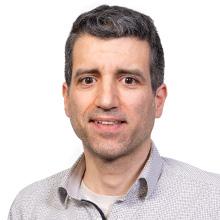
Julio Saez Rodriguez
Head of Research
Saez-Rodriguez Group
Edit
Tim Coorens
Group Leader
Coorens group
coorens [at] ebi.ac.uk
+ 44 (0) 1223 494 444 (reception)
EditCollaborations
Collaborations
EMBL Grenoble
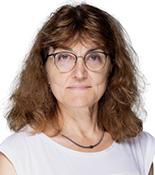
Kristina Djinovic Carugo
Head of EMBL Grenoble
EMBL Grenoble
Edit
Gergely Papp
Team Leader
Papp Team
EditCollaborations
Holger Daims, University of Vienna, Austria
Michael Wagner, University of Vienna, Austria
Misha Savitski, EMBL Heidelberg, Germany
Collaborations
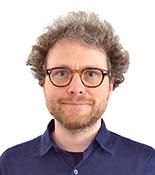
Florian Wollweber
Group Leader
Wollweber Group
Edit
Andrew McCarthy
Team Leader
McCarthy Team
EditCollaborations
Collaborations
EMBL Hamburg
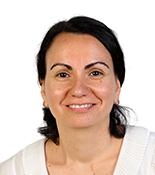
Maria Marta Garcia Alai
Research Team Leader and Senior Scientist/ Deputy Head of EMBL Hamburg
Garcia Alai Team
EditCollaborations
EMBL Heidelberg
Cell Biology and Biophysics
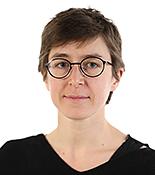
Anna Erzberger
Group Leader
Erzberger Group
Edit
Robert Prevedel
Group Leader and Senior Scientist
Prevedel Group
EditCollaborations
Collaborations
Brice Bathellier, Institut Pasteur France (Auditory neuroscience, functional brain imaging)
Kareem Elsayad, Medical University of Vienna, Austria (Biophysics, brillouin microscopy)
Sylvain Gigan, Laboratoire Kastler-Brossel, France (Computational imaging, adaptive optics)
Martin Jechlinger, MOLIT Heilbronn, Germany (Organoid intravital imaging, optical coherence microscopy)
Anna Kreschuk, EMBL Heidelberg, Germany (Computational image analysis, machine learning)
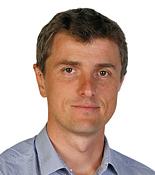
Yannick Schwab
Team Leader and Head of Electron Microscopy Core Facility
Schwab Team
Edit
Thomas Quail
Group Leader
Quail Group
EditCollaborations
Collaborations
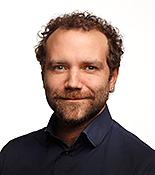
Niccolò Banterle
Group Leader
Banterle Group
Edit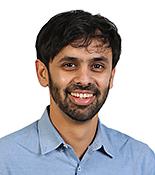
Gautam Dey
Group Leader
Dey Group
EditCollaborations
Collaborations
Thibaut Brunet, Pasteur, France (cell division and the evolution of multicellularity)
Omaya Dudin, UNIGE, Switzerland (Cytoskeletal diversity across the tree of life)
Monica Bettencourt-Dias, CRG, Spain (Evolution of mitosis)
Aleksandr Vjestica, UNIL Lausanne, Switzerland (Evolution of meiosis)
Laura Eme, Université Paris Saclay, France (Evolution of eukaryotic cellular organisation)
Ross Waller, Cambridge, UK (Evolution of eukaryotic cellular organisation)
Thomas Richards, Oxford, UK (Cell cycle response to the environment)
Bungo Akiyoshi, Edinburgh, Scotland (Kinetochore evolution )
Joseph Schacherer, Strasbourg, France (Fungal diversity and phenotypic plasticity )
Elisabeth Hehenberger, CAS Czechia (Dinoflagellate evolution)
Buzz Baum, MRC LMB Cambridge, UK (Evolution of the nucleolus)
Dolf Weijers, Wageningen, The Netherlands (Plant cell division)
Courtney Stairs, Uppsala, Sweden (Anaerobic protist diversity)
Tom Williams, Bath, UK (Deep eukaryotic evolution and phylogenetics)
Georg Hochberg, Marburg, Germany (Protein evolution)
Yasin Dagdas, Heidelberg, Germany (Evolution of autophagy and turnover mechanisms)
Luis Galindo, Granada, Spain (Deep-branching protists)
Developmental Biology
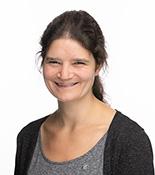
Isabella Graf
Group Leader
Graf Group
Edit
Jordi van Gestel
Group Leader
van Gestel Group
EditCollaborations
Florian Berger, Utrecht University, The Netherlands (Mammalian hearing, information processing)
Jordi Garcia-Ojalvo, Universitat Pompeu Fabra, Barcelona, Spain (Predator-prey dynamics, information processing, evolutionary fitness)
Collaborations
Gautam Dey, EMBL Heidelberg, Germany
Knut Drescher, University of Basel, Switzerland
Anna Erzberger, EMBL Heidelberg, Germany
Elizabeth Ostrowsk, Washington University at St. Louis, USA
Nicoletta Petridou, EMBL Heidelberg
Flora Vincent, EMBL Heidelberg, Germany
Hahn Vu, EMBL Heidelberg, Germany
Georg Zeller, Leiden University Medical Center, The Netherlands

Flora Vincent
Group Leader
Vincent Group
EditCollaborations
Collaborations
Genome Biology
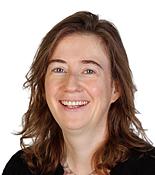
Eileen Furlong
Head of Genome Biology Unit
Genome Biology Unit
Edit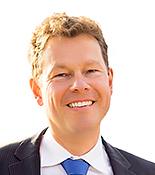
Wolfgang Huber
Group Leader and Senior Scientist
Huber Group
EditCollaborations
Collaborations
Sascha Dietrich, Clinic for Haematology, Oncology and Clinical Immunology
Düsseldorf, Germany (Method development for spatial omics data analysis and application to understand role of tumour microenvironment and immune system in cancer immunotherapies)
Davide Risso, University of Padova
Italy (Spatial omics data analytical method development, spatial statistics, digital pathology foundation models, machine learning)
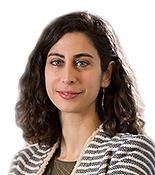
Sinem K. Saka
Group Leader
Saka Group
Edit
Oliver Stegle
Acting Head of AI centre
Stegle Group
EditCollaborations
Isabel Bludau, Universitäts Klinikum Heidelberg, Germany (Isoform resolved spatial multi-omics)
Ana Boskovic, EMBL Rome, Italy (Visualization of small RNAs)
Sascha Dietrich (Spatial multi-omic and integrative analysis of lymphomas)
Daniel Furth, Uppsala, Sweden (applications of photoreactive chemistries)
Anna Kreshuk, EMBL Heidelberg, Germany (Applications of Deep Learning for multi-dimensional data analysis)
Moritz Mall, German Cancer Research Centre, Germany (Combinatorial transcription factor screens and cell state engineering)
Carsten Muller-Tidow, Universitäts Klinikum Heidelberg, Germany (Regulation and functional impact ot small RNAs in AML)
Mats Nilsson, Stockholm University, Sweden (spatial omics method development)
Kyung-Min Noh, Aarhus University, Denmark (Gene regulation and subcellular reoganization of neurons in neuropathologies, iPSCs)
Denis Schapiro, Heidelberg University, Germany (Cross-scale tissue analysis)
Andreas Trumpp, German Cancer Research Centre, Germany (Cancer, neuron interactions)
Britta Velten, Heidelberg University, Germany (Modeling subcellular heterogeneity)
Collaborations
Molecular Systems Biology
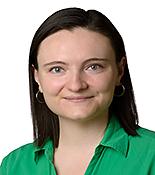
Svetlana Dodonova
Group Leader
Dodonova Group
Edit
Michael Dorrity
Group Leader
Dorrity Group
EditCollaborations
Olivier Duss, EMBL Heidelberg, Germany
(Transcription, single molecule techniques, chromatin, archaea, cryo-EM/ET)
Dina Grohmann, Universität Regensburg, Germany (Archaea, transcription, thermophiles, cryo-EM/ET)
Marieke Oudelaar, Max Planck Institute for Multidisciplinary Sciences, Göttingen, Germany (Chromatin organisation, functional genomics, archaea, cryo-EM/ET)
Thomas Quail, EMBL Heidelberg, Germany
(Biophysics, single molecule techniques, chromatin, archaea, cryo-EM/ET)
Michael Zimmermann, EMBL Heidelberg, Germany (Bacteria, chromatin, high-throughput assay development, cryo-EM/ET)
Collaborations
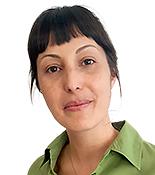
Julia Mahamid
Head of Molecular Systems Biology
Molecular Systems Biology Unit
Edit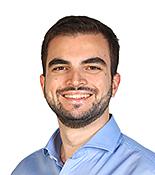
Simone Mattei
Team Leader
Mattei Team
EditCollaborations
Collaborations
Simone Köhler, EMBL Heidelberg, Germany (Cellularisation of C. elegans oocytes, membranes remodelling, cryo-correlative light and electron microscopy, in situ structural biology)
Felix Rey, Institute Pasteur, France (Cellularisation of C. elegans oocytes, membranes remodelling, cryo-correlative light and electron microscopy, in situ structural biology)
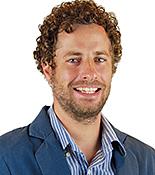
Olivier Duss
Group Leader
Duss Group
Edit
Nassos Typas
Head of Molecular Systems Biology
Molecular Systems Biology Unit
EditCollaborations
Collaborations
Kiran Patil, MRC Cambridge, UK (Microbial communities – interactions, evolution & modeling)
Joel Selkrig, Aachen, Germany (Cell envelope of gut bacteria – new molecular machines & coordination)
Orsolya Barabas, University of Geneva, Switzerland (Reverse transcriptases – structure-function, bacteria-phage interactions)
Collaborations
Maria Vila Costa, Institute of Environmental Assessment and Water Research, Barcelona, Spain
Michael Zimmermann, EMBL Heidelberg
EMBL Rome

Cornelius Gross
Head of EMBL Rome
EMBL Rome
Edit
James Hackett
Group Leader, Deputy Head of Unit (EMBL Rome)
Hackett Group
EditCollaborations
Collaborations
Francesco Nicassio, IIT, Italy (Chromatin, Nanopore sequencing, Splicing, Computational biology)
Moritz Mall, DKFZ, Germany (Epigenome editing, Disease therapeutics, Mouse biology, Genomics)
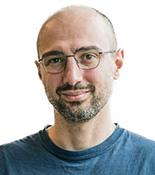
Fabio Petroni
Group Leader
Petroni Group
EditCollaborations
Gian Gaetano Tartaglia, IIT, Italy (AI for multimodal interaction prediction)
Training
The interdisciplinary research training fellows receive in the lab is complemented by a rich portfolio of transferable skills courses in line with the needs of future employers from the academic, private and public sectors. Workshops include gender and diversity dimension in research, research integrity, open science and data management, dissemination and communication and IP and entrepreneurship, and leadership. They also complete a specialized workshop of their choice either on Innovation or Science policy.
Public Engagement
EMBL is committed to sharing its science with the general public, policy makers and other target groups. EIPOD-LinC Fellows complete public engagement training as well as 1 public engagement activity during the course of their fellowship. They can contribution to one the many activities organised by EMBL’s Science Education and Public Engagement Office. Alternatively, they can put forward a suggestion of an activity to the Programme Office for approval.
Career Development
Fellows have access to professional career development support via the EMBL Fellows Career Service. This includes 1-to-1 career guidance sessions, access to career development resources and workshops and trainings. They are asked to complete 1 career workshop offered by the Career Service. Conference funding to support participation in a conference is also available.
EMBL as an Employer
EIPOD-LinC fellows receive 3 year fully funded contracts based on the EMBL site at which they are based. The 2025 Postdoctoral Fellowship rates are available here.
The EMBL HR pages provide an overview of the Laboratory’s conditions of employment. Positions come with:
- Social securities including health insurance, unemployment insurance and pension scheme
- Travel and accommodation support to visit partner labs (EMBL and external if relevant)
- Allowances: family allowance for fellows in a union and children’s allowance if relevant
The programme supports equal opportunities in the broadest possible sense. Some of EMBL’s sites have onsite child care and the others have arrangements with local providers. Part-time is a possibility for fellows returning from parental leave.
EMBL is committed to promoting a fair, diverse and inclusive workplace as a driver of scientific excellence and innovation. We provide additional support to fellows with disabilities (e.g., workplace modifications, extra assistance), neurodivergent fellows (e.g., coaching) and to researchers at risk (e.g., postal application when the online application is not possible). The application form contains a voluntary self-disclosure section only seen by the EIPOD team to indicate if applicants require additional support during the interview process.
Application
Eligibility requirements
Academic requirements:
Applicants must have a Ph.D. by the call deadline (February 2nd, 2026). Researchers who have successfully defended their doctoral thesis but who have not yet been formally awarded the doctoral degree are eligible to apply. A maximum of eight years of experience in research, from the date of the award of their PhD degree is permitted. Years of experience outside research and career breaks will not count towards the maximum.
Successful candidates have 4 months to take up their fellowship. The latest start date is August 31, 2026 for fellows recruited in the 2025 call for applications.
Mobility requirements:
The EIPOD-LinC programme is open to experienced researchers of all nationalities. Prior association (including visitor contracts) of a postdoctoral candidate with EMBL and/or a Member State partner is compatible with application to the programme but cannot exceed 12 months within the last 3 years prior to the submission deadline. Prior association relates to having worked with a person/group. It can include having done a Ph.D. or Postdoc with the supervisor or having been a visitor in their lab/group. Any previous association must be indicated on the application form.
Ethics requirements:
Projects must align with EMBL and Horizon Europe ethics guidelines. Candidates complete and submit a Horizon Europe ethics self-assessment for their project as part of their application.
Secondment requirements:
All applicants must include a partner lab from an EMBL MS who will participate in the research project as a co-supervisor. The partner can be from an academic institute, industry or clinic. Successful applicants will spend between 3 months to 1 year in the MS lab on research secondment.
If you have questions related to your personal situation please get in touch with us at eipod@embl.org
How to apply
- Read the guide to applicants. available here.
2. Watch the information webinar available here.
3. Develop an interdisciplinary project proposal under the overarching theme of life in context. This will be submitted as part of your application (see 7). The project template (available here) must be used.
4. Develop an interdisciplinary project proposal under the overarching theme of life in context. This will be submitted as part of your application (see 7). For the ethics form, please fill in the table. At submission stage no additional information is needed for any questions you mark with “yes”. This additional information is requested from successful candidates prior to their start.
5. Contact an EMBL host. EMBL’s research groups can be screened by research area. Make sure the group leader(s) you are interested are participating in the call (available here when the call opens). No letter of support is needed from the EMBL host.
6. Choose a partner from an external academic institute, industry or clinic from an EMBL Member State, Associate Member State or Prospective Member State. Not sure who to choose? Most EMBL hosts have suggested collaborators (available here when the call opens). Discuss with your EMBL host. Check collaborator suggestions from your EMBL host listed on the participating faculty page (to be updated at the beginning of November 2025). No letter of support is needed from the Partner.
7. Complete the application form.
8. Open an application account on EMBL’s Job Portal. Convert your application, project and ethics forms to a single PDF and upload them in the CV section of the online application.
9. Please ask your referees to send their references (2) to: EIPOD-references@embl.de
Note: the references are due by the call closing on February 2, 2026. It is the applicant’s responsibility to ensure that the reference letters are submitted to the EIPOD Office on time.
Evaluation and Interviews
Evaluation of Written Applications
EIPOD-LinC is a competitive merit-based fellowship programme. It follows a well-defined weighted scoring system (see the Guide to Applicants). Eligible applications are independently reviewed by 3 external experts. Evaluators are asked to provide an overall impression of a candidate’s application in terms of excellence, impact and implementation as described in the guide to applicants (available here at the beginning of November)
Interviews
The interviews will take place by Zoom on April 20 and 21, 2026. Candidates give a presentation (10 min.) on their scientific contributions to date and their self-designed research project to an interview panel. This is followed by a discussion covering scientific aspects of the previous and proposed work, motivation of the candidate and career-related topics (30 min.).
Appeal
Ineligible candidates, candidates who are not short-listed or who do not receive an offer after the interview may request an appeal if they suspect procedural errors limited the success of their applications. The scientific judgement of the expert evaluators and interview panels is not open to appeal. The details of the appeal procedure are included in the outcome email. Candidates must document the procedural error that they felt limited their success and return it to the EIPOD team within 7 days of receiving the outcome email informing them about the appeal option.
FAQ
Who is eligible to apply?
The eligibility requirements for the EIPOD-LinC programme are available here. The programme is open to all nationalities.
Can I apply before finishing my PhD?
Applicants must have a Ph.D. by the call deadline (February 2, 2026 ). Researchers who have successfully defended their doctoral thesis but who have not yet been formally awarded the doctoral degree are eligible to apply.
I am currently a Postdoctoral Fellow. Am I eligible to apply?
We welcome applications from scientists who are currently doing postdoctoral research at another institution. Postdocs and visitors at EMBL are also eligible to apply provided that previous affiliation with EMBL does not exceed 12 months in the last three years prior to the submission deadline (February 2, 2026). Any previous association must be indicated on the application form. Applicants must not have resided or carried out their main activity (work, study etc.) in the external partner lab for more than 12 months in the 36 months immediately before the call deadline.
My referee does not have an institutional email address.
Please ask your referee to send a reference letter on institutional headed paper, signed and stamped as a PDF document to EIPOD-references@embl.de.
In what language can I complete my application?
We only accept applications completed in English.
Are there any guidelines for the design of the project proposal?
Yes, there is a template (available here) that must be used for all submitted project proposals. Projects that don’t use the template and adhere to the specifications (font, page limit margins) are not eligible. Please also refer to the guide to applicants (available here) for additional details.
May I submit more than one project for consideration as part of my application?
Applicants are invited to submit one project as part of their application.
If I am successful when do I have to start the EIPOD position?
Successful applicants must start their fellowship within 4 months of the EIPOD interviews.
If you do not find an answer to your question, please contact the EIPOD office (eipod@embl.org).
Partner organisations
A number of partner organisations are participating in the EIPOD-LinC programme.
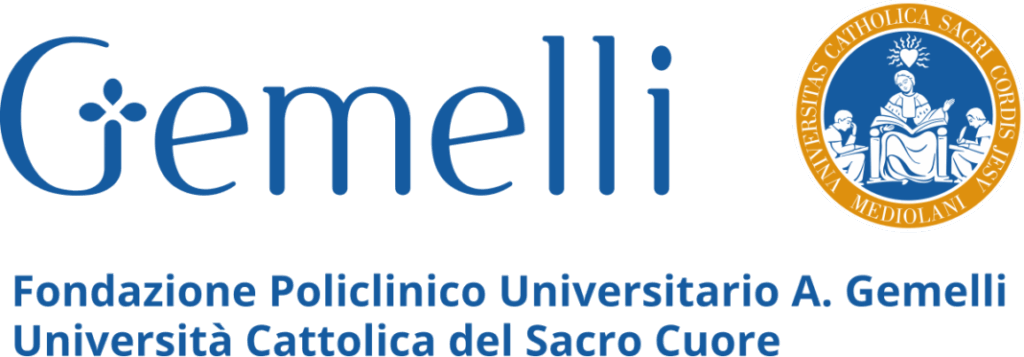







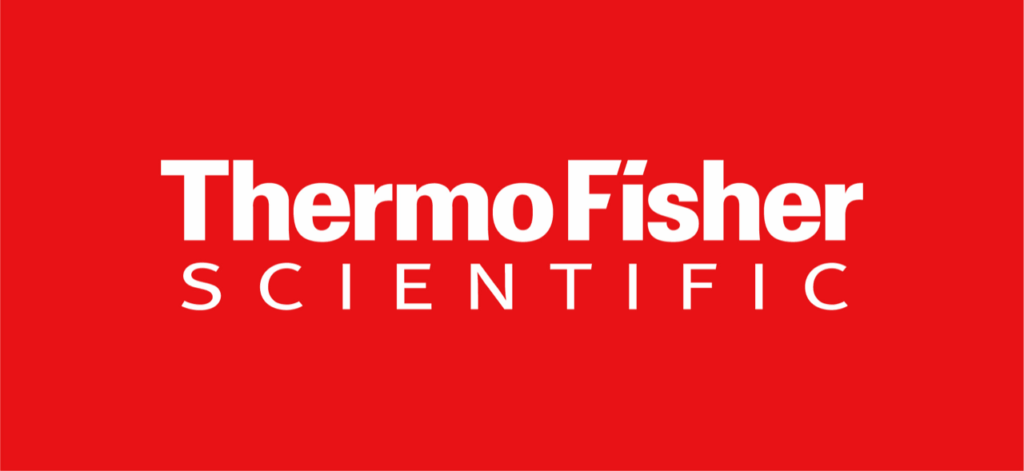
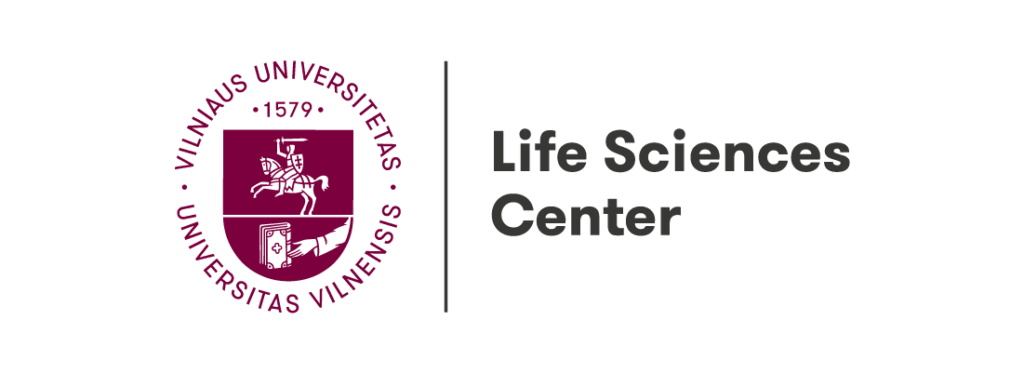
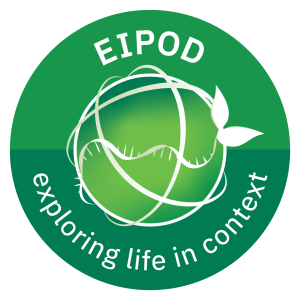
Dates: 2025 Call
Start of online application 28.11.2025
End of online application: 02.02.2026
Expert evaluation of applications: 16.02. – 09.03.2026
Short-listing committee meets: 24.03.2026
Invitations to interview: Week of March 26th, 2026
EIPOD Interviews (talks and panel interviews by Zoom): 20.04. – 21.04.2026)
Decision Meeting: 22.04.2026
EIPOD Office send out decision letters:
Contact: eipod@embl.org
